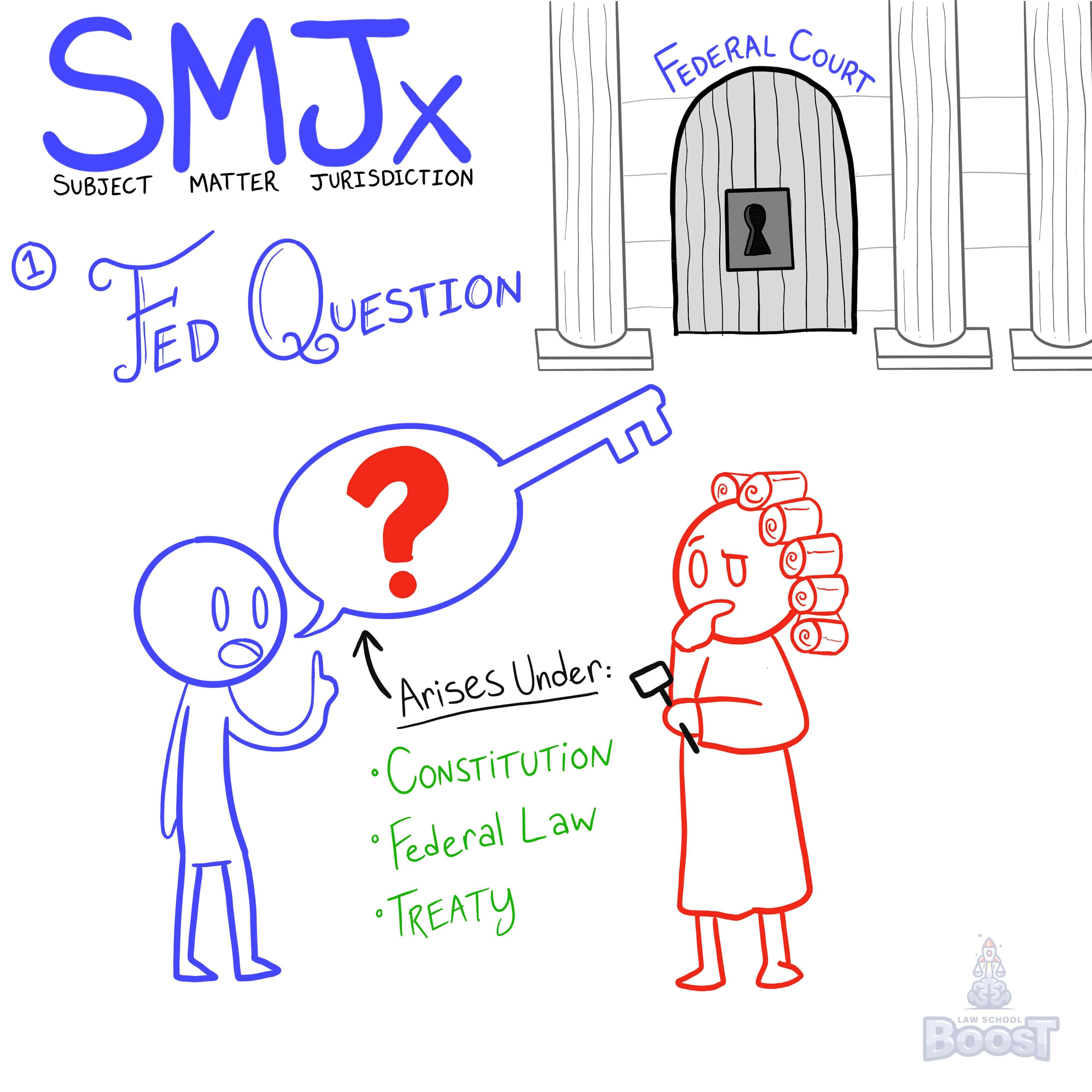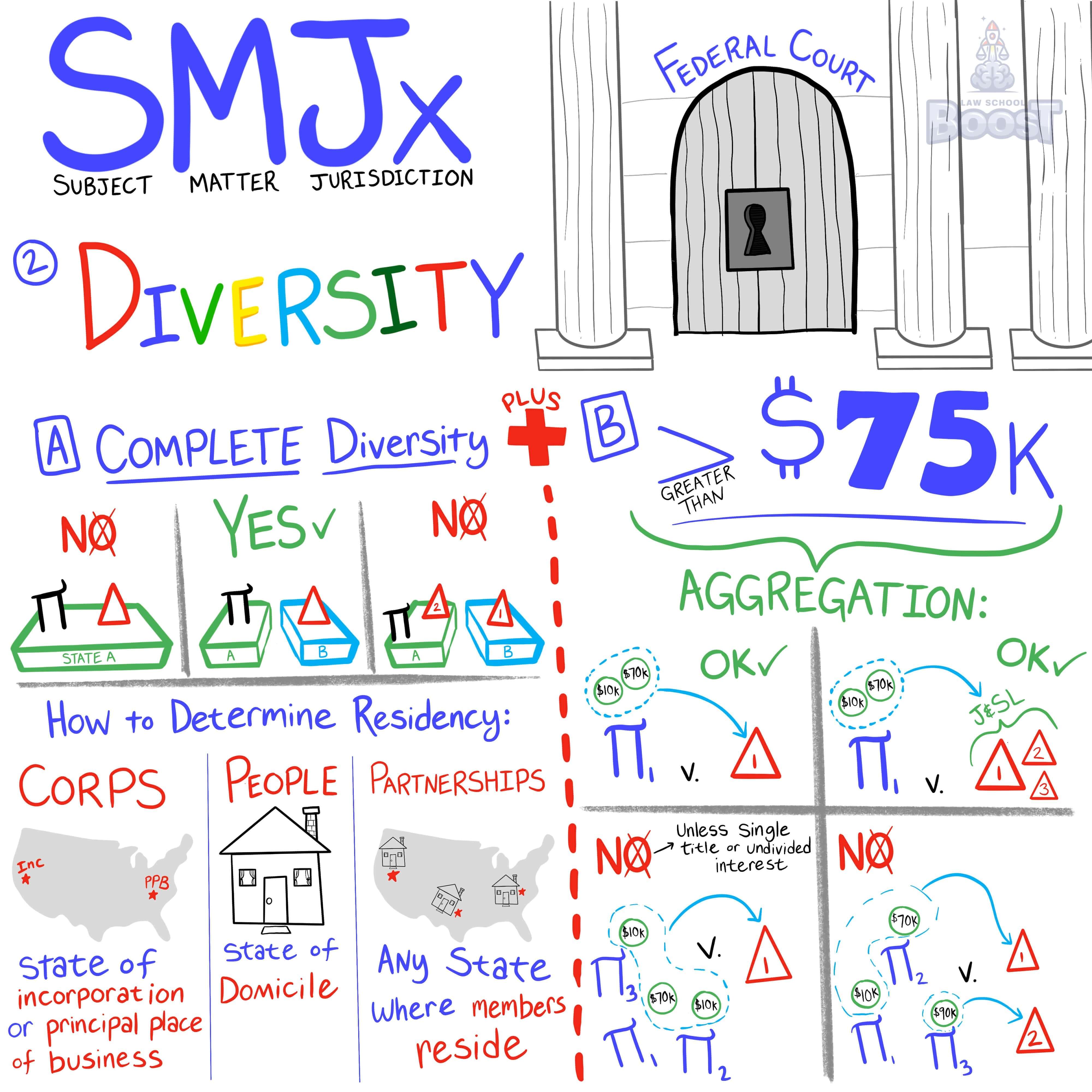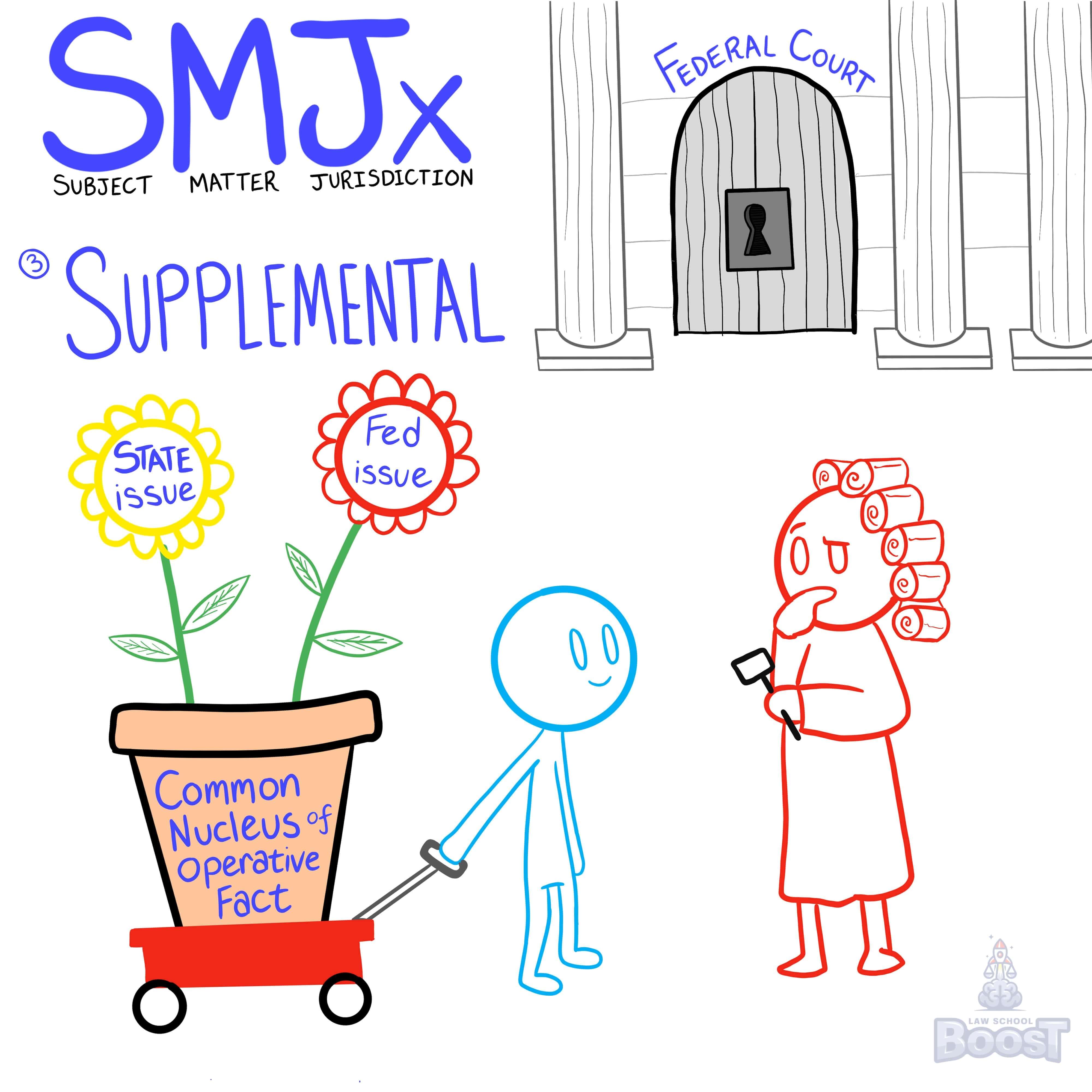🤤
Civil Procedure • Subject Matter Jurisdiction
CIVPRO#011
Legal Definition
Subject matter jurisdiction based on diversity of citizenship requires complete diversity between plaintiffs and defendants, and an amount in controversy greater than $75,000, set forth in a good faith pleading, not inclusive of interest and costs.
Plain English Explanation
One of the most common ways that a plaintiff or defendant may receive a permission slip to have their case heard in Federal Court is when the plaintiff and defendant are residents of different states and the issue they are fighting over is worth at least $75,001.
In other words, Federal Court provides a type of neutral playing field for disputes between residents of different states so that there is no "home field advantage" to either party in their state's court.
Note that you don't need to specifically calculate your damages to be more than $75,000. Instead, you need only have a legitimate, genuine, good faith belief that your damages are more than $75,000. If later, during the trial, damages are reduced or awarded in an amount less than $75,000, that is okay. The case isn't kicked out of federal court.
But be sure to pay attention. One of the most common ways a professor or test writer will try to trick you is to make you feel like there is diversity, but the amount in controversy is either only $75,000 exactly, or less than it, which doesn't qualify.
In other words, Federal Court provides a type of neutral playing field for disputes between residents of different states so that there is no "home field advantage" to either party in their state's court.
Note that you don't need to specifically calculate your damages to be more than $75,000. Instead, you need only have a legitimate, genuine, good faith belief that your damages are more than $75,000. If later, during the trial, damages are reduced or awarded in an amount less than $75,000, that is okay. The case isn't kicked out of federal court.
But be sure to pay attention. One of the most common ways a professor or test writer will try to trick you is to make you feel like there is diversity, but the amount in controversy is either only $75,000 exactly, or less than it, which doesn't qualify.
Hypothetical
Hypo 1: Bob lives in California. Sam lives in Texas. Bob agreed to build Sam an app for $80,000. Sam pays Bob 50% up front. After 6 months of delays, Sam finds that Bob has not started the app's development and appears to be unable to finish the deadlines. Sam wants to sue Bob in federal court to return his payment. Result: Subject matter jurisdiction does not exist. Yes, the total amount of the contract was for $80,000, but Sam only paid 50% up front, so his claim would be under the $75,001+ requirement in order to enable diversity subject matter jurisdiction.
Hypo 2: Bob lives in California. Sam and Jill live in Texas. Amy lives in California. Sam, Jill, and Amy are partners in a fancy dog clothing company, Fancy Hounds. Fancy Hounds orders $80,000 worth of silk fabric from Bob. Bob sends cotton fabric instead. Fancy Hounds wants to sue Bob in federal court. Result: Subject matter jurisdiction does not exist. Here, Amy ruins it because Fancy Hounds is a partnership, which means you must consider the residency of each and every member. Since both Bob and Amy live in California, diversity is lacking.
Hypo 2: Bob lives in California. Sam and Jill live in Texas. Amy lives in California. Sam, Jill, and Amy are partners in a fancy dog clothing company, Fancy Hounds. Fancy Hounds orders $80,000 worth of silk fabric from Bob. Bob sends cotton fabric instead. Fancy Hounds wants to sue Bob in federal court. Result: Subject matter jurisdiction does not exist. Here, Amy ruins it because Fancy Hounds is a partnership, which means you must consider the residency of each and every member. Since both Bob and Amy live in California, diversity is lacking.
Visual Aids



Related Concepts
How can subject matter jurisdiction be based on a federal question?
How is citizenship determined under subject matter jurisdiction?
What is subject matter jurisdiction?
What is supplemental jurisdiction?
What types of cases will California courts exercise general subject matter jurisdiction over?
When is aggregation of damages under a diversity claim allowed and not allowed?
When may a federal court hear a state claim?


